- Home
- Joan Jonker
Dream a Little Dream
Dream a Little Dream Read online
Dream A Little
Dream
Joan Jonker
Copyright © 2000 Joan Jonker
The right of Joan Jonker to be identified as the Author of the Work has been asserted by her in accordance with the Copyright, Designs and Patents Act 1988.
Apart from any use permitted under UK copyright law, this publication may only be reproduced, stored, or transmitted, in any form, or by any means, with prior permission in writing of the publishers or, in the case of reprographic production, in accordance with the terms of licences issued by the Copyright Licensing Agency.
First published as an Ebook by Headline Publishing Group in 2011
All characters in this publication are fictitious and any resemblance to real persons, living or dead, is purely coincidental.
Cataloguing in Publication Data is available from the British Library
eISBN : 9780755390311
HEADLINE PUBLISHING GROUP
An Hachette UK Company
338 Euston Road
London NW1 3BH
www.headline.co.uk
www.hachette.co.uk
Contents
Title Page
Copyright Page
About the Author
Also by Joan Jonker
Dedication
Chapter One
Chapter Two
Chapter Three
Chapter Four
Chapter Five
Chapter Six
Chapter Seven
Chapter Eight
Chapter Nine
Chapter Ten
Chapter Eleven
Chapter Twelve
Chapter Thirteen
Chapter Fourteen
Chapter Fifteen
Chapter Sixteen
Chapter Seventeen
Chapter Eighteen
Chapter Nineteen
Chapter Twenty
Chapter Twenty-One
Chapter Twenty-Two
Chapter Twenty-Three
Chapter Twenty-Four
Chapter Twenty-Five
Chapter Twenty-Six
Chapter Twenty-Seven
Joan Jonker was born and bred in Liverpool. Her childhood was a time of love and laughter with her two sisters, a brother, a caring but gambling father and an indomitable mother who was always getting them out of scrapes. Then came the Second World War when she met and fell in love with her husband, Tony. For twenty-three years, Joan campaigned tirelessly on behalf of victims of violence, and it was during this time that she turned to writing fiction. Sadly, after a brave battle against illness, Joan died in February 2006. Her best-selling Liverpool sagas will continue to enthral readers throughout the world.
Joan Jonker’s previous novels, several of which feature the unforgettable duo Molly and Nellie, have won millions of adoring fans:
‘Wonderful … the characters are so real I feel I am there in Liverpool with them’ Athena Tooze, Brooklyn, New York
‘I enjoy your books for they bring back memories of my younger days’ Frances Hassett, Brixham, Devon
‘Thanks for all the good reads’ Phyllis Portock, Walsall
‘I love your books, Joan, they bring back such happy memories’ J. Mullett, Lancashire
‘I’m an ardent fan, Joan, an avid reader of your books. As an old Liverpudlian, I appreciate the humour. Thank you for so many happy hours’ Mrs L. Broomhead, Liverpool
Also by Joan Jonker
When One Door Closes
Man Of The House
Home Is Where The Heart Is
The Pride Of Polly Perkins
Sadie Was A Lady
Walking My Baby Back Home
Try A Little Tenderness
Stay As Sweet As You Are
Dream A Little Dream
Many A Tear Has To Fall
Taking A Chance On Love
Strolling With The One I Love
When Wishes Come True
The Girl From Number 22
One Rainy Day
Featuring Molly Bennett and Nellie McDonough
Stay In Your Own Back Yard
Last Tram To Lime Street
Sweet Rosie O'Grady
Down Our Street
After The Dance Is Over
The Sunshine Of Your Smile
Three Little Words
I'll Be Your Sweetheart
Non-fiction
Victims Of Violence
To Clare, who is not only my editor but also my
sympathetic ear and my friend. And to all the staff at
Headline for their help, friendliness and support. It has
always been much appreciated.
And to my agent, Darley Anderson, who is one of
life’s gentlemen. Ever supportive and encouraging, and
with a good sense of humour, it is a pleasure to be
associated with him.
Dear Readers,
Dream A Little Dream is somewhat different from my other books, but I’m sure you will enjoy it. There are two baddies this time, who I know you will want to boo and hiss. I invented them, but there were times when I felt like boxing their ears! However, the other characters more than make up for them. You will need to keep a tissue handy.
My thanks to the many readers who have written to me. I get a lot of pleasure from reading your letters which are, without exception, always warm and friendly.
Take care.
Love,
Joan
Chapter One
‘Mother, I don’t want to go to a finishing school!’ Abbie Dennison and her mother faced each other across the wide, highly polished mahogany table. ‘I’d like to take a six-month course at a commercial college.’
Edwina Dennison’s nostrils flared. She was a tall, thick-set woman with mousy-coloured hair which was swept back severely from her face and curled into a bun at the nape of her neck. She had a dull complexion, hard hazel eyes and thin lips that were seldom stretched into a smile. And her long thin nose added to her ever-present haughty expression. ‘A commercial college? And what, pray, do you expect to learn there that would equip you for a life befitting our family’s standing in the community?’
‘I could learn shorthand and typing, book-keeping and—’
‘We’ll hear no more of this nonsense.’ Edwina cut short her daughter’s words. With her hands resting on top of one of the eight beautifully carved dining chairs which stood in uniformity around the table, she stared at her daughter. ‘You’ll continue to be educated as your father and I wish. You show little sign of ambition and left to your own devices would probably be quite happy serving behind a shop counter. A year at a finishing school will teach you deportment, etiquette and the art of conversation.’
‘But Mother, that is not what I want!’
‘Abigail, do not answer me back. You are a very ungrateful girl who does not appreciate the finer things in life that being a member of this family has given you. Now we’ll hear no more of this nonsense and you will go to your room and reflect on how lucky you are.’
Unnoticed by his wife and daughter, Robert Dennison was sitting in his favourite armchair which was set in the bay window and looked out on to the large garden at the back of the ten-roomed house. It was the place he found most peaceful to read his newspaper, away from his wife’s incessant chattering. Had his youngest daughter not been the victim of her acid tongue, he would probably not have made his presence known. As it was, he swivelled the chair around to face them. ‘Stay where you are, Abbie, please. I think there should be some discussion on what is, after all, your life. It is only right that your wishes are taken into account.’
‘Robert, I thought we agreed the children’s education should be left to me.’ Edwina was not best pleased. �
�I am their mother and know what’s best for them.’
Her husband sighed. Usually he gave into his wife to keep the peace, but not this time. ‘Abbie, will you go to your room while your mother and I discuss this? And don’t look so downhearted, it’s not the end of the world.’
‘All right, Dad.’ The girl smiled at him before leaving the room. If it wasn’t for him, she would have a very miserable home life.
As soon as the door closed behind her, Edwina started. ‘She’s far too old to be calling you “Dad”, and it’s so working class. Why can’t she call you “Father”, as Victoria and Nigel do? And why is she so awkward and ungrateful? Any normal girl would be delighted at the chance of going to finishing school, but not Abigail, oh dear, no! Look what it did for Victoria. She moves with ease in all the right circles and her friends are from some of the richest families in Liverpool.’
‘Oh, Victoria moves with ease in all the right circles, I’ll grant you that. But that is all she can do. She doesn’t have a job, she wouldn’t know how to dust or wash dishes, and she can’t even make a cup of tea. That is what finishing school did for Victoria. And what did Nigel’s expensive education do for him? Nobody will ever employ him because he refuses to work or get his hands dirty. I’ve tried to interest him in the firm’s business because the idea was that he would take over when I retire. But when I make him come down to the office with me, he shows no interest whatsoever and just gets under everyone’s feet. The youngest clerk has got more nous than he has.’
Edwina’s nostrils were white and her head quivering with anger. ‘How can you talk about your own children like that? Victoria is a daughter to be proud of. She’s very pretty, always well-groomed and can converse with anyone. And Nigel is not a strong boy, never has been. He’s only twenty years of age, and I’m sure that when the time comes for him to take charge of the business, he’ll be well up to the task.’
Robert gazed at his wife and wondered how she could forget her roots. She’d been a lively, pretty girl when he started courting her. They lived in the same street of two-up, two-down houses, and she was called Edie then. Her family, like all the others in the street, had to struggle to make ends meet. But looking at her now no one would believe she’d worked in a factory until they’d married. And she made sure none of her snooty, middle-class friends ever found out.
Robert ran a hand across his forehead. He’d been working at the office all day and his head was filled with figures. That’s why he’d come to sit in his favourite chair in the dining room, so he could read his paper undisturbed. Now he could feel a headache building up.
‘I am not going to argue with you,’ he told his wife. ‘I shall not even raise my voice. That is something I should have done years ago. But because I was so busy building up the business to give you and the children a decent life, I allowed you free rein. That was the worst thing I could have done. It is too late to do much about Victoria and Nigel, you’ve spoiled them since I started earning decent money. But it’s not too late for me to show some interest in my youngest daughter, and this I intend to do. By asking to go to commercial college, Abbie’s shown she wants to do more with her life than swan around all day doing nothing, and I say she should be allowed to do as she wishes.’
Edwina was shocked. Her husband had never interfered before, nor spoken to her in such a challenging tone. ‘And I say she should go to a finishing school,’ she argued.
‘The subject is closed, Edwina, so please let it drop.’ How it stuck in his throat to call her by that name. ‘And I do not want you discussing it with Abbie. I will tell her when we’re having our meal, and I would advise you not to go against my wishes. You have a good life, one you could only have dreamt about in the old days. A house in Mossley Hill, plenty of money to entertain and buy the most expensive clothes, a live-in housekeeper, a daily cleaning woman and a gardener. Not bad for someone brought up in a two-up, two-down in Seaforth.’
‘Aren’t you forgetting you only lived a few doors away?’
‘I have never denied my roots, and never would. I slogged my guts out, working to make something of myself. Missed going down to the pub with my mates for a pint, cut my smokes down to five Woodbines a day, anything to save a few coppers. Even when we got wed I used to deny myself things, but I always made sure you never went without. And I sometimes wonder if it was all worth it. You see, I was far happier when I was younger, even though my mother and father were as poor as church-mice. What we lacked in the way of food and clothes, they made up for with lots of laughter and love. I used to call them me mam and dad, as all the kids did, yourself included, and I still think the words have a ring of love about them, not as cold as Mother and Father.’
Robert sighed, asking himself why he bothered. Not once while he was talking was there a flicker to show his wife remembered those days. He shouldn’t have expected any, knowing she’d spent the last seventeen years deliberately putting them out of her mind. She’d worked hard on losing her Liverpool accent, and the richer they became, the more of a snob she became. And like a fool, he’d allowed her to change him, as well. At least on the surface she had. She’d be horrified if she knew he often frequented a small local pub near his office. And if she heard him in conversation with some of the workmen in the pub, sipping a pint of bitter and conversing so easily in the local dialect, she’d have one of the fainting fits she seemed able to bring about at will, and which confined her to bed for the day. But Robert had noticed these dizzy spells never occurred on a day she was entertaining some of her snooty friends. She was all sweetness and light then, playing the perfect hostess as if she had never known any other kind of life.
‘I would very much like to go back to reading my paper now,’ he said firmly, ‘if you would kindly leave me alone to do so.’
As he swivelled his chair back towards the view of the garden, Robert didn’t need to be told his wife was blazing with anger. He could hear it in the swish of her long black skirt, and the harsh closing of the door. Years ago, this would have upset him, and he’d have halted the argument with a kiss. But those days were long gone. There was no love or passion in their marriage now, it had been slowly killed by her aloofness. They shared the same bed because of the children, but they hadn’t lived as man and wife since Abbie was born, seventeen years ago. Although Edwina never spoke the words, she made it clear that she had done her duty by giving him three children and found the act of lovemaking sordid.
Robert opened the newspaper and sought the article he’d been reading before the interruption, but he could no longer interest himself in it and let the paper fall to his lap. Resting his head on one of the wings of the maroon velvet chair, he closed his eyes and let his mind take him back in time. It was 1901, he was fourteen and had left school. Jobs weren’t easy to come by, and he thought himself lucky to be taken on by a man who had a small furniture-removal business. The wages were low, only two bob a week, but his mother had said it was better than nothing and would tide him over while he looked for something that paid better. But Bob, as he was called then, loved the work because he was able to sit on the long seat at the front of the cart and watch the horse clip-clopping along. And after a few months, his boss, Will Lathom, let him take the reins and it was one of the most exciting days of his life. He became attached to Mr Lathom and Blackie, the horse, and he felt proud sitting on a cart that had high sides and bore the name of William Lathom – Furniture Removals. And he never did look for another job. He was a big lad for his age and capable of handling heavy furniture with ease, so they were able to take on more jobs and soon he was given a shilling a week rise in his pay. He’d been so proud that day, he remembered, when he handed his mother his wages. And the sixpence he got back as pocket-money made him feel like a millionaire.
He was so lost in thought, Robert didn’t hear the discreet cough of the housekeeper and was startled when she appeared in front of him. ‘I thought yer might like a cup of tea, Mr Robert.’ She handed him a delicate china cup and saucer.
‘A little milk and two sugars, just as yer like it.’
‘Thank you, Agnes, that’s very thoughtful of you.’
‘Dinner will be in half an hour, sir.’
He smiled up at the woman who had been their live-in housekeeper for the last ten years. She was a good, hard worker, her cooking renowned, and the envy of all their friends. But her greatest gift, Robert thought, was that she smiled a lot and was very down to earth. She knew her place, but wasn’t afraid to speak her mind if she thought she was right. She had been known to swear like a trooper on occasion, but housekeepers of her calibre were hard to come by, so even Edwina handled Agnes Weatherby with care.
‘I’ll drink my tea and then change for dinner.’ Robert pursed his lips. ‘On second thoughts, Agnes, I might not get changed for dinner tonight.’
‘If yer don’t feel like it, Mr Robert, then don’t get changed.’ The housekeeper walked towards the door, muttering, ‘Waste of bleedin’ time anyway, if yer ask me.’
Robert swallowed a mouthful of tea before setting the cup back in the saucer. Then he chuckled and called after her, ‘I agree, Agnes, it is a waste of bleedin’ time.’
She turned with her hand on the door knob and a look of innocence on her chubby face. ‘I never said no such thing, Mr Robert, yer must be hearing things.’ Then she straightened the white cap on her head and smoothed her apron down over her ample bosom and tummy. ‘It’s either that, or I was talking to meself.’ She gave him a broad wink then disappeared through the door to walk down the wide, expensively carpeted hall, to her domain. Nobody entered her kitchen without first knocking. Once there, she again addressed herself. ‘Him and Miss Abbie are the only two sane people in the bleedin’ house! The other three are away for slates and haven’t a clue what life’s all about. Lazy buggers, if yer ask me, more money than sense.’
Robert finished his tea and was placing the saucer on a mahogany side table when his eyes lit on the solid crystal ashtray. His wife disapproved of smoking and wrinkled her nose at the smell of tobacco, so for the sake of peace he used his study as a smoke room. But tonight he was going to change the rules. He would smoke his cigar here, and instead of changing for dinner, he would spend the time reflecting on the past. So when his cigar had caught, he puffed away contentedly and allowed his mind to go back in time, to when he was eighteen. There was one day which would always stand out in his mind, because, although he wasn’t to know it then, it was the day that was to change his life.

 MB09 - You Stole My Heart Away
MB09 - You Stole My Heart Away MB08 - I’ll Be Your Sweetheart
MB08 - I’ll Be Your Sweetheart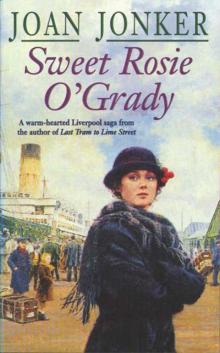 MB03 - Sweet Rosie O’Grady
MB03 - Sweet Rosie O’Grady Strolling With The One I Love
Strolling With The One I Love The Girl From Number 22
The Girl From Number 22 Dream a Little Dream
Dream a Little Dream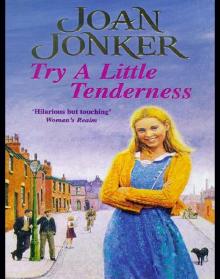 Try a Little Tenderness
Try a Little Tenderness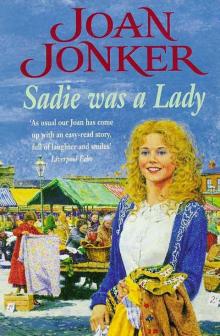 Sadie Was A Lady
Sadie Was A Lady MB01 - Stay In Your Own Back Yard
MB01 - Stay In Your Own Back Yard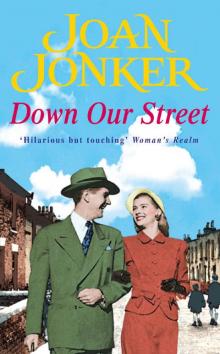 MB04 - Down Our Street
MB04 - Down Our Street Walking My Baby Back Home
Walking My Baby Back Home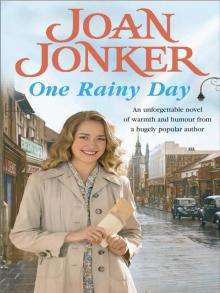 One Rainy Day
One Rainy Day MB07 - Three Little Words
MB07 - Three Little Words Stay as Sweet as You Are
Stay as Sweet as You Are Taking a Chance on Love
Taking a Chance on Love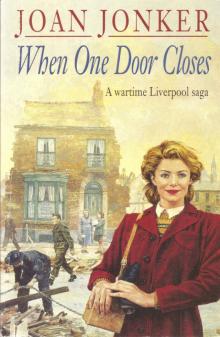 EG01 - When One Door Closes
EG01 - When One Door Closes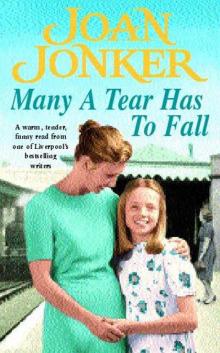 Many a Tear has to Fall
Many a Tear has to Fall EG02 - Man of the House
EG02 - Man of the House MB02 - Last Tram To Lime Street
MB02 - Last Tram To Lime Street The Pride of Polly Perkins
The Pride of Polly Perkins EG03 - Home Is Where The Heart Is
EG03 - Home Is Where The Heart Is MB05 - After the Dance is Over
MB05 - After the Dance is Over